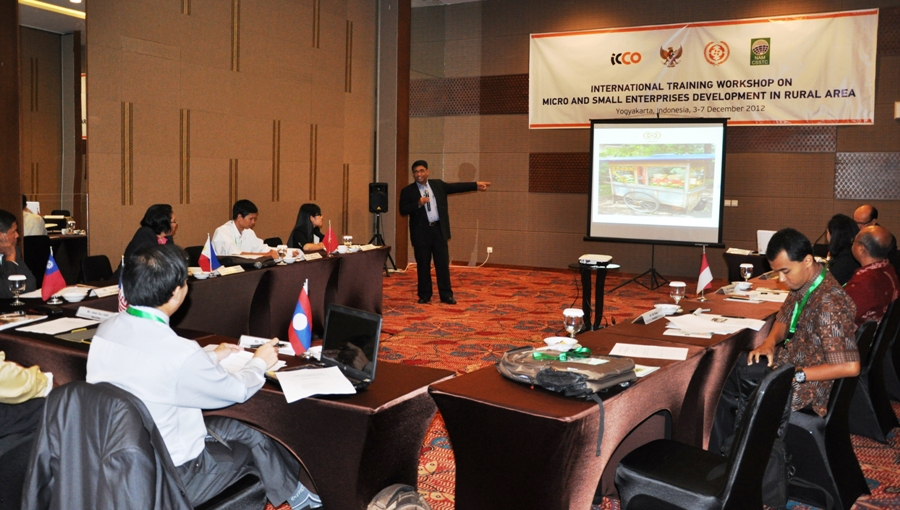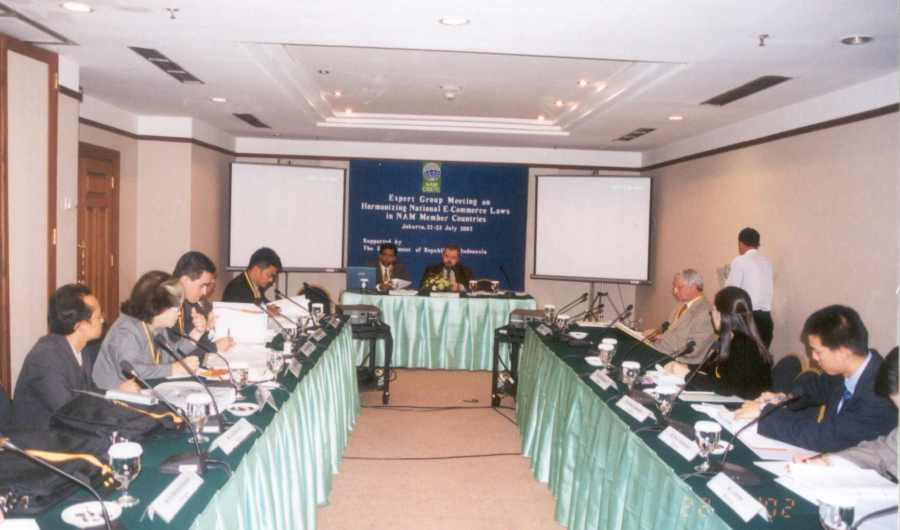|
Small Medium Enterprises
Small and Medium Enterprises (SMEs) are
globally recognized as potential engine of growth. As important providers of
employment opportunities, they have the capacity to make an enormous
contribution to poverty eradication and equitable development effort. But SMEs need to utilise information
to expand in today's knowledge-based business environment.
 For SMEs, e-commerce is becoming an important avenue
for market expansion and competitive advantage. Many
SMEs from the North are already reaping their own benefits; if their counterparts in
the Southfolloware not following through, they will be rapidly marginalized. Therefore, NAM's
SME programme is intended for SMEs in South-South region to participate fully in a competitive and globalised market, as modality
to enhance the uptake and utilization of e-commerce For SMEs, e-commerce is becoming an important avenue
for market expansion and competitive advantage. Many
SMEs from the North are already reaping their own benefits; if their counterparts in
the Southfolloware not following through, they will be rapidly marginalized. Therefore, NAM's
SME programme is intended for SMEs in South-South region to participate fully in a competitive and globalised market, as modality
to enhance the uptake and utilization of e-commerce
In light of this, NAM CSSTC
established the benchmarks of issues and current practices needed to develop such
modalities. In October 2001, more than 100 participants from 19 NAM member
countries gathered in Bandar Seri Begawan, Brunei Darussalam, to discuss issues
and strategies for implementing e-commerce programmes; e-commerce awareness; SMEs' access to infrastructure; strategic alliances and common legal frameworks
for e-commerce.
The workshop concluded that the e-readiness of SMEs
varies considerably among the NAM member countries. SMEs in countries that have
low per capita income are constrained by limited skills and
knowledge-managements, both administrative and technical-and limited market
opportunities, lacks of accesses to credit and low awareness of tpotential of
e-commerce. In many cases, they also face huge infrastructural obstacles, such
as lack of electricity or telephone connection in rural areas. Measures to assist SMEs in these countries were discussed.
 SMEs in NAM member countries with higher per capita
income are in a much better position benefit from e-commerce. Their
principal constraint is the incompatibility of national e-commerce laws among
the NAM members. One solution suggested was to use the e-commerce section of the
United Nations Commission for International Trade Law (UNCITRAL) to harmonize
the relevant laws of the NAM member countries. SMEs in NAM member countries with higher per capita
income are in a much better position benefit from e-commerce. Their
principal constraint is the incompatibility of national e-commerce laws among
the NAM members. One solution suggested was to use the e-commerce section of the
United Nations Commission for International Trade Law (UNCITRAL) to harmonize
the relevant laws of the NAM member countries.
The workshop identified specific actions that could
be taken by NAM governments and private sectors to enhance e-readiness. NAM CSSTC itself has resolved to
-
identify expertise on international trade
laws in NAM member countries;
- investigate the feasibility of harmonizing
national e-commerce laws in NAM member countries; and
hold a meeting of experts to recommend
policies and programmes to support the development of NAM's SMEs within NAM
member countries.
Related Page :
|

